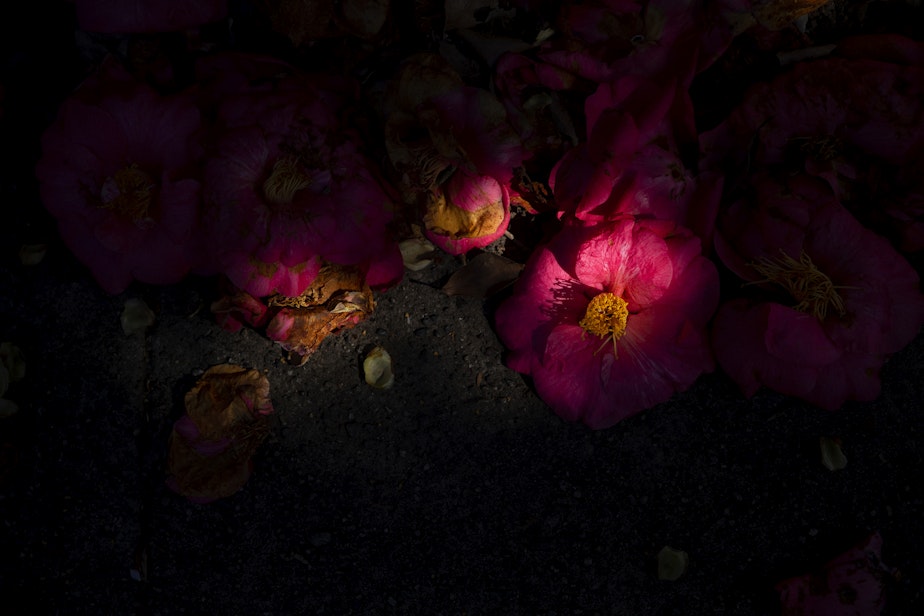What Ciscoe Morris says you should know about spring gardening around Seattle in 2024

Spring gardening season has arrived in the Seattle area. Since every year has its seasonal quirks, expert Ciscoe Morris spoke with "Soundside" to deliver some spring 2024 gardening tips.
A few quick tips:
- Right now (April 2024) is a good time to start planting salad greens, like lettuce and mustard.
- It's also a good time to plant shrubs.
- Ryegrass is a good option for lawns that take a beating and need repair.
- If the plants are at the nursery, then it's OK to plant them at home. Don't leave them in the nursery pots. They can suffer in pots and get root bound if you wait too long.
Get pruning right now
Check in on those plants in the yard, especially since they went through the recent cold snaps that struck the Northwest. Severe cold may have knocked a few down, even if they don't show it.
Sponsored
If you have outdoor plants that are woody, get out some clippers and give them a little scrape.
"I scrape it near the base, if it's green under there, don't cut it down, it's probably going to branch out. If it's brown under there, you might as well cut off that dead branch and then you just got to hang on and hope it comes back," Morris said.
Morris notes that some plants may not come back until June. So be patient.
What the 9A?!
Gardeners may have noticed a certain code changing at their local plant nursery. Whereas Western Washington plants used to state they were good for USDA zone 8B, they now say their apt for hardiness zone 9A.
Sponsored
These zones are how the USDA determines which plants can successfully grow in certain areas. The agency averages low temperatures over the past 30 years to come up with them. As of late 2023, the Northwest jumped into a warmer hardiness zone.
But Morris is skeptical of the change.
"That's kind of a really weird way to decide how much cold a plant can take, because it was 11 degrees this year; the year they say [we're] zone 9, it goes to 11 degrees ... and we get these arctic freezes and it really hammered a lot of my rare and unusual plants."
"It confuses the tweedle out of me how anybody thinks a zone 9 plant is going to live [around here]," he added. "Over time, we keep warming up and our coldest temperatures might not be that cold, but we get some pretty darn cold temperatures when we get an arctic frost, so if you buy a zone 9 plant, you are really brave."
In other words, you can put a zone 9 plant in your garden, but watch out if yet another severe cold snap arrives.
Sponsored
Need an indestructible plant that can survive a bad gardener?
If you have a bad track record with plants, and are afraid to plant something in your yard, Morris recommends a Spirea, which he says is "indestructible."
"Spirea is the plant to grow. The Japanese type has really pretty flowers on the top and I cut those down by two-thirds in the spring. You can grow those in clay, in the worst soil, you can grow them on concrete I think," he said with a laugh.
Another option is Phygelius, also known as Cape Fuchsia.
"They have these really pretty fuchsia-like flowers, they're not fuchsias, hummingbirds die for them," he said. "Those are so tough. I've seen garbage trucks run right over them and the plant goes, 'Oh, oh that felt good.'"
Sponsored
Why are racoons and crows tearing up my lawn?
Have you noticed raccoons and/or crows digging up your lawn? Morris says this is likely a symptom of a much larger problem.
"That means you've got European chafer beetles," he said. "They've moved in over the last few years, they've never been here before ... if they're getting into your lawn, you might have this beetle larva in there."
To crows and raccoons, these larva are "gourmet treats."
"If you do, there's these nematodes, these microscopic worms, a hundred million in a little box," he said. "You apply them in the third week of July, and they eat the larva. They go in an attack the larva. If your lawn is getting ripped up, that may be why."
Sponsored
Morris personally uses a device called a "ScareCrow" (many companies make them, but this is the brand he has tried). This device is a motion sensor attached to a sprinkler hose. It blasts yard intruders when you're not around.
Spanish bluebells coming back after you ripped them out?
"You have to learn to love them or move," Morris said, noting he has never found any solution (other than moving) to defeat the Spanish bluebell.
KUOW's Dyer Oxley contributed to this report.





